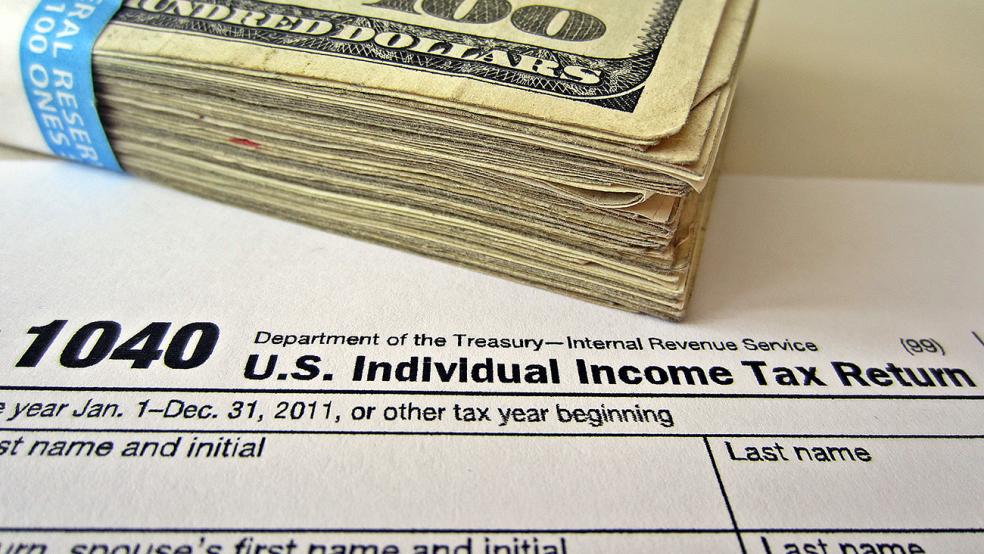Republicans are expected to release an outline of their tax plan on Wednesday, but some of the basic elements of the plan are reportedly still in flux. One problem is the sheer size of the tax cuts being considered – by one account, the current GOP wish list is worth more than $5 trillion over ten years.
That lofty estimate comes from Kyle Pomerleau of the Tax Foundation, who looked at the cost of doing all the things Republicans have said they want to do, including reducing rates for individuals and businesses, doubling the standard deduction, repealing the alternative minimum tax and cutting taxes on overseas corporate profits.
The problem is that the Senate Finance Committee made a deal last week that could essentially cap the cost of tax cuts at $1.5 trillion over 10 years. This leaves Republicans with a serious geometrical puzzle to solve: How do you fit a $5 trillion peg into a $1.5 trillion-sized hole?
A former Republican congressional aide gave The Wall Street Journal a metaphor that will make sense to anyone who has shopped for a new car lately: “To fit every policy you want, you need a full-size SUV, but at best you have a midsize crossover … Some stuff just isn’t going to fit, no matter how much cramming you do.”
Like What You're Reading? Get Our Free Email Newsletter
Given the constraints, it’s a safe bet that we’ll see some serious deal-making within the tax-writing committees over the next few months. And while Republicans have some room to maneuver, it’s not unlimited. On Tuesday, Rep. Mark Meadows, the leader of the House Freedom Caucus, warned that he would vote against the tax package if the corporate rate is above 20 percent. And Meadows is not the only member of Congress who will have red lines on tax reform.
All of that means that tax reform has a long way to go, and that success is not assured, even with Republicans controlling the White House and Congress. As Conservative economist Douglas Holtz-Eakin said in Bloomberg: “Until I see it, I have nothing but worries … If you do tax policy in Washington, D.C., you live a life of disappointment.”




